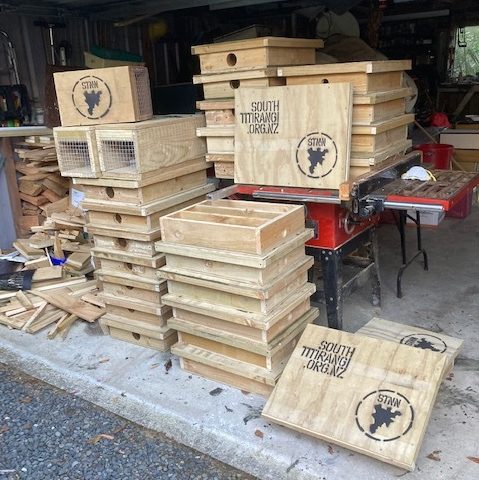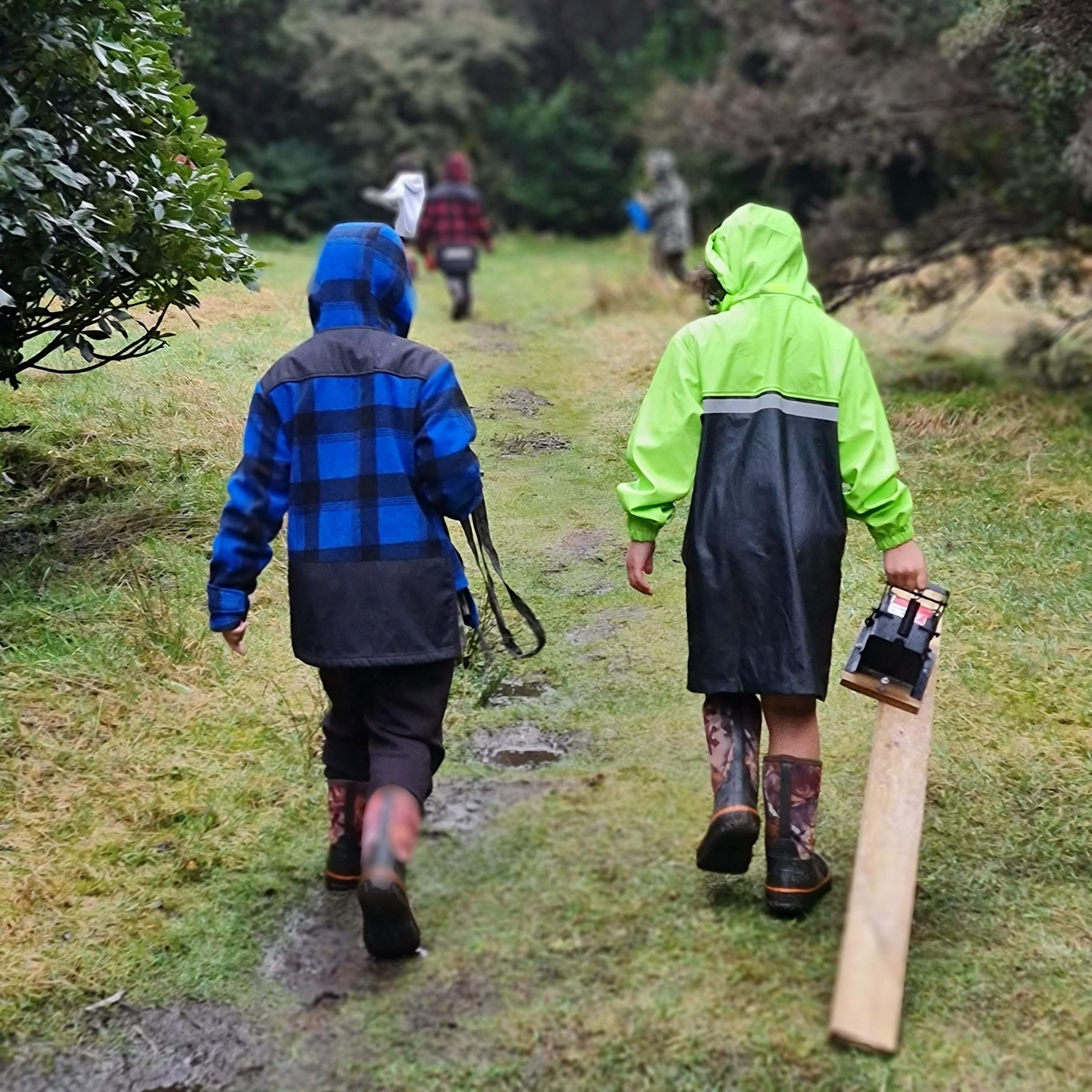We are pleased to announce eleven community groups who will receive Predator Free Backyard Communities funding. We received over a hundred applications and the majority were from highly motivated groups ready to make a difference in their communities.

Friends of Riverpark Reserve, Auckland
Friends of Riverpark Reserve is an existing group that has made great headway around the Riverpark Reserve Peninsula. Currently, this group has 40 traps out that are checked daily with catches logged. Friends of Riverpark Reserve intends to engage neighbouring residents and get them involved in backyard trapping. This will help cement the group’s previous successes in the bush and creek area and make the Riverpark Reserve a safe haven for native species.
Pest Free Leigh, Auckland
Pest Free Leigh was established in October 2020 and is backed by the Leigh Community Club. They aim to have a rat trap in every backyard in Leigh, Matheson Bay and Ti Point residential areas and have already constructed 386 trap tunnel boxes for local residents to use. They also aim to greatly reduce mustelids and possums populations in the three residential areas.
Through this mahi, Pest Free Leigh hopes to protect the wide diversity of native fauna that Leigh is home to.
Predator Free Maraetai & Beachlands, Auckland
Predator Free Maraetai & Beachlands is a new community group located along the eastern coast of Auckland. Their aim is to restore local pockets of native bush that are being ‘hammered’ by possums so native flora and fauna can thrive. They will also play an important role in protecting the Hauraki Gulf islands that are a few kilometers off their coastline. By getting the residents involved in predator control, this community group wants to help prevent predator invasions. Predator Free Maraetai & Beachlands want to engage their community through school projects, educational events and trap building days.
South Titirangi Neighbourhood Network, Auckland
The South Titirangi Neighbourhood Network was established in 2016 with a goal of making their bushy urban peninsula weed and predator-free. The group has already engaged approximately 200 of the 1400 households in the area.
Their aim is to have a rat trap in every 3rd household and a possum trap in every 7th.
Through trapping, South Titirangi Neighbourhood Network wants to see predator numbers drop and for bird numbers, including the beautiful ōi (grey-faced petrel) to increase.

Te Wairoa Charitable Trust, East Cape
Te Wairoa Charitable Trust of Matakaoa is a group on the East Cape ready to get their residents involved in protecting their local native taonga. Matakaoa is a rurally isolated community with a population of approximately 600, and is home to endangered fauna and flora. Te Wairoa Charitable Trust will actively involve the community in their planning and goal-setting process so that the people of Matakaoa can decide what a predator-free community looks like to them. Their ultimate goal is to eradicate all predators so native species in Matakaoa can thrive again.
Waitara Taiao Incorporated, Taranaki

Waitara Taiao Incorporated is an established group that has over 400 members. They want to grow community involvement through school trap-building projects, affordable easy-to-access traps and educational resources.
Waitara Taiao Inc. are encouraging members to monitor and track their trapping efforts through Trap.NZ.
Their ultimate goal is to become a ‘one-stop shop’ for Waitara residents to get involved in the predator-free movement.
Kelburn Conservation Network, Wellington
The suburb of Kelburn is on the north-east boundary of ecosanctuary Zealandia and Kelburn Conservation Network believes that they have a special responsibility to provide a safe habitat for the native species that spill over from the sanctuary. Already this group has established a motivated team and an initial roll-out of traps. Now, they aim to build up supplies of traps and proactively target households for distribution, especially those at the edges of local reserves or green spaces. Kelburn Conservation Network’s long-term goal is to connect in to the larger Predator Free Wellington movement.
Pest Free Manor Park, Wellington
A lot of Manor Park residents are already trapping, but Pest Free Manor Park plans to engage 150 households to make a community-wide impact. Manor Park is situated close to the Hutt River, which makes the area prone to introduced predators – possums, rats, and stoats are seen regularly. Pest Free Manor Park aims to have a trap in every 5th property so that native species in their community can thrive.
Stepneyville Halo, Nelson
Stepneyville Halo is a new community group in Nelson that aims to have 100 rat traps in backyards around their area and have a predator monitoring programme established. Nelson is home to the Brook Waimārama Sanctuary that is a haven for native birds and reptiles protected by a predator-proof fence. Stepneyville Halo wants to extend this safe haven into the areas surrounding the sanctuary and into their suburb. Stepneyville Halo wants to suppress predator numbers in their suburb to give native wildlife the best chance of survival.
Predator Free Redcliffs, Canterbury
Predator Free Redcliffs was established in 2019 with the aim of filling in the gap between Sumner and the Port Hills, where trapping efforts are well-established. With an estuary on one side and considerable red zone land on the other, Redcliffs is particularly prone to rats and possums. Predator Free Redcliffs want to engage the 1000 households in their suburb with chew card monitoring, subsidised traps and tunnel-building workshops.
Chatham Islands Community Trapping
Chatham Islands Community Trapping is a new community group and is the first community-led backyard trapping programme on the Chatham Islands. Previously, there has been a focus on areas of high conservation value and the group would like to broaden this by providing predator control in an urban setting. They aim to not only protect native species but also improve the health and wellbeing of Chatham Islanders. Currently, this group is engaging with residents and has set a goal of having 95% of landowners buy into the project.

